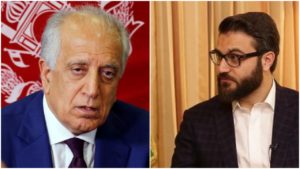Latest News
In Unusual Move, U.S. Summons Visiting Afghan NSA Mohib
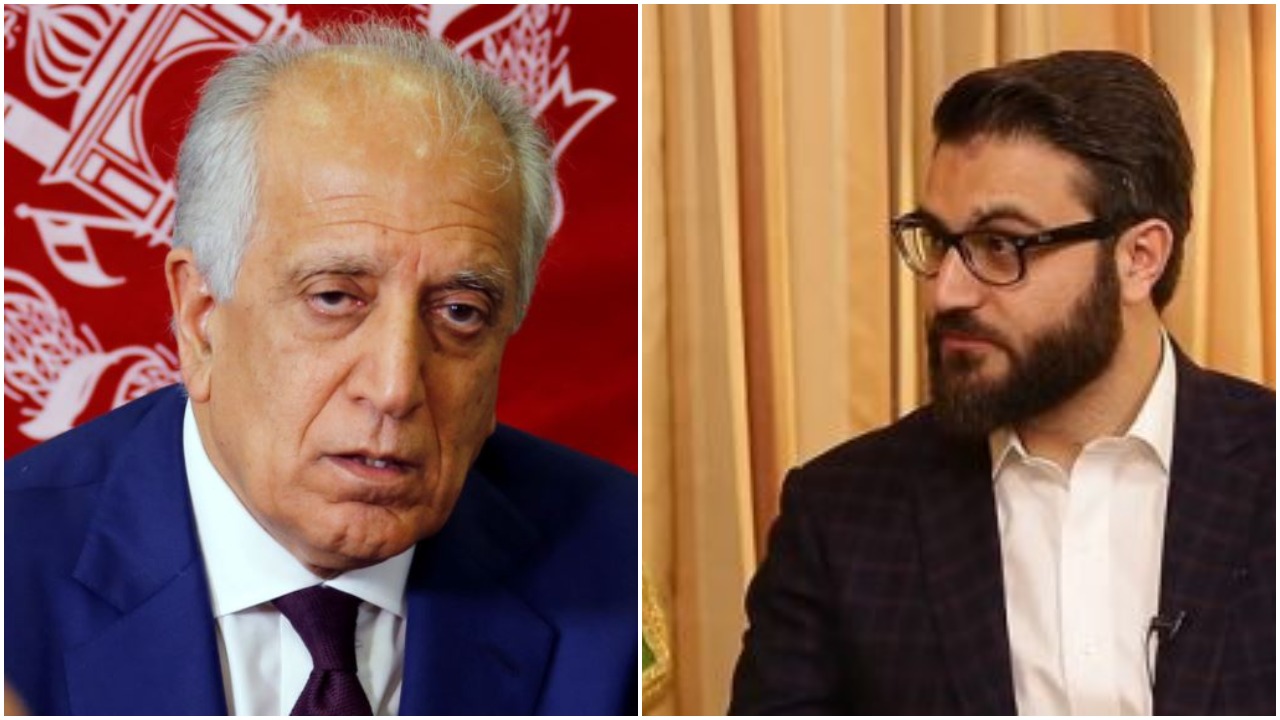
He said that Khalilzad is keeping the “duly elected” Afghan government in dark and that in the latest round of talks in Doha, they were humiliated and made to wait in a hotel lobby.
“We don’t know what’s going on. We don’t have the kind of transparency that we should have,” Mohib told reporters at a news conference on Thursday.
He said the Afghan government was getting the information in bits and pieces.
“The last people to find out (about the peace talks) are us,” Mohib added.
Palladino also said that the U.S. was displeased with Mohib’s comments.
Also expressing his displeasure was U.S. National Security Advisor John Bolton, who reportedly refused to meet Mohib.
Husain Haqqani, a former Pakistani ambassador to the U.S., who is now at the Hudson Institute think-tank, criticized the State Department for such a treatment to Mohib.
“Such arrogance! Not expected of U.S. diplomats. More suited to the erstwhile Soviet Union or China,” Haqqani tweeted. “Support for Afghan peace could have been asserted without such language.”
Mohib said while the democratically elected Afghan government has been kept out of the peace talks, Islamabad was well aware of the developments happening at the talks in Doha.
“The patron (Pakistan foreign minister) tweets and says there was progress in Doha. Were they there? What is the relationship of the Taliban with Pakistan? I have to say it, spell it out,” he said.
“What is the relationship (between the Taliban and Pakistan)? Has anybody asked and what does it mean? What will be the end of that relationship? Will peace in Afghanistan mean Pakistan no longer using proxies for their political objectives and terrorists. Will the UN raise that question of what the policy or non-state actors?” asked Mohib.
“There will be no peace unless Pakistan stops supporting “non-state actors”, Mohib said.
“Imagine these discussions were successful. What would be Pakistan’s objective? What would it be for the Pakistani military? What would be the incentives for them? The incentive for them is they’ve just defeated the United States [and] all of its coalition partners,” he said.
“It (Pakistan) has the incentive to continue to sponsor and support its policy of Islamic extremist. That is the best weapon they have, and they will continue to use it at the cost of all Muslims,” Mohib said. “If we don’t hold Pakistan responsible for the use of their non-state actors and terrorists here, you will not be able to hold them back anywhere else.”
It comes as the fifth round of U.S.-Taliban talks which lasted 16 days, ended on Monday in Doha, Qatar. The sides reported progress, but no final deal on withdrawal of U.S.-led international forces and arrangements that the Taliban ensures militants would not use Afghanistan to stage attacks against the U.S. and its allies.
Latest News
Pakistan PM: We need the international community to urge the IEA to curb terrorism
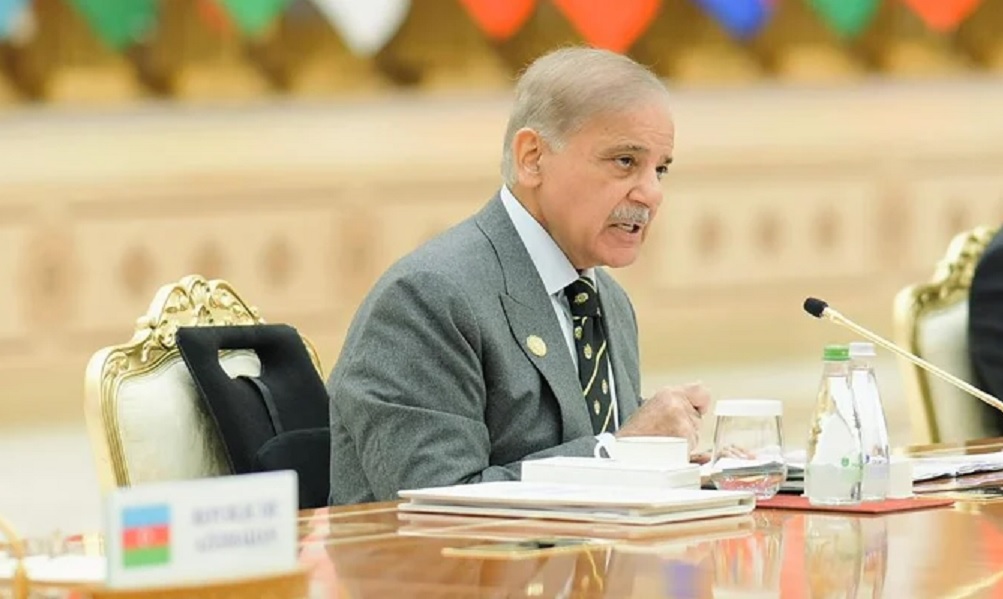
Speaking at a high-level forum in Turkmenistan dedicated to the International Year of Peace and Trust 2025, the International Day of Neutrality, and the 30th Anniversary of Turkmenistan’s status of permanent neutrality, Sharif said the region is once again facing a rising threat.
“The scourge of terrorism is raising its head yet again, and this time unfortunately from Afghan soil,” he stated. “As we are dealing with this menace, we need the international community to urge the Afghan Taliban regime (IEA) to fulfil its international obligations and commitments and rein in terrorist elements operating from its territory.”
Sharif also expressed appreciation for regional countries that have been working to de-escalate conflicts and promote stability.
“We are very grateful to our brotherly countries — Qatar, Turkey, the Kingdom of Saudi Arabia, the UAE and Iran — for their sincere desire and efforts to achieve a permanent ceasefire, which as I speak is still very fragile,” he added.
Pakistani officials have repeatedly claimed that attacks in the country are organized by militants operating from Afghan soil.
The Islamic Emirate, however, denies the allegation, saying it cannot be held responsible for security in Pakistan.
Trade between the two countries was halted on October 11 following airstrikes in Afghanistan and clashes near the Durand Line.
Latest News
Türkiye ready to help uphold Pakistan-Afghanistan truce, Erdogan tells Sharif
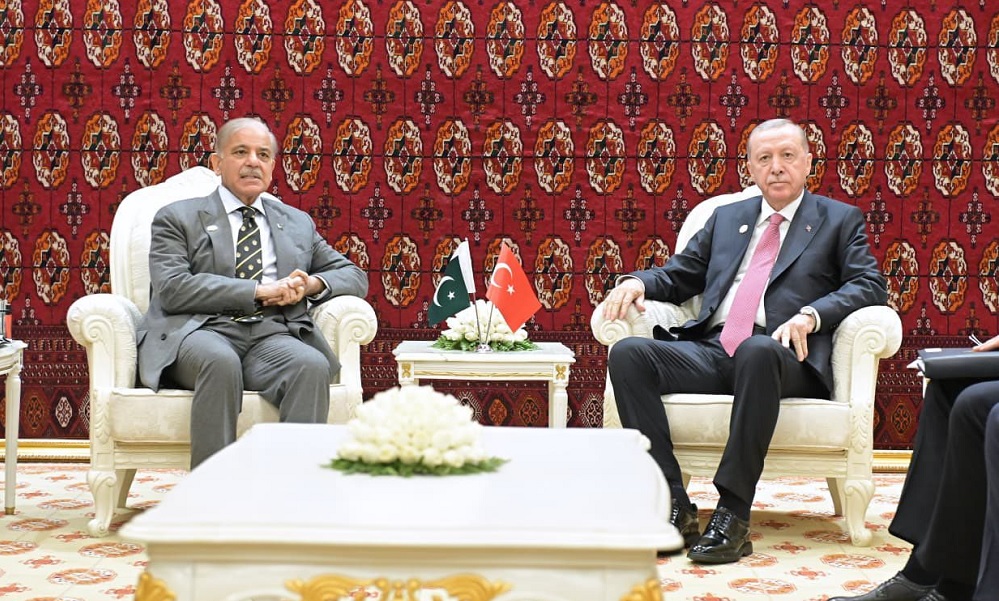
Türkiye stands ready to help sustain the truce between Pakistan and Afghanistan, President Recep Tayyip Erdoğan told Pakistani Prime Minister Shahbaz Sharif during their meeting on Friday on the sidelines of the International Peace and Trust Forum in Ashgabat, Turkmenistan.
According to Türkiye’s Directorate of Communications, Erdogan said Ankara is committed to strengthening its “good relations” with Islamabad and will work to deepen cooperation in energy, trade and investment.
Welcoming the recent extension of the Pakistan-Afghanistan ceasefire, Erdogan noted Ankara’s readiness to contribute to the mechanism established to maintain the absence of conflict.
Pakistani officials have repeatedly claimed that attacks in the country are organized by militants operating from Afghan soil.
The Islamic Emirate, however, denies the allegation, saying it cannot be held responsible for security in Pakistan.
Trade between the two countries was halted on October 11 following airstrikes in Afghanistan and clashes near the Durand Line.
Latest News
US claims 2,000 evacuated Afghans have links to terrorist groups
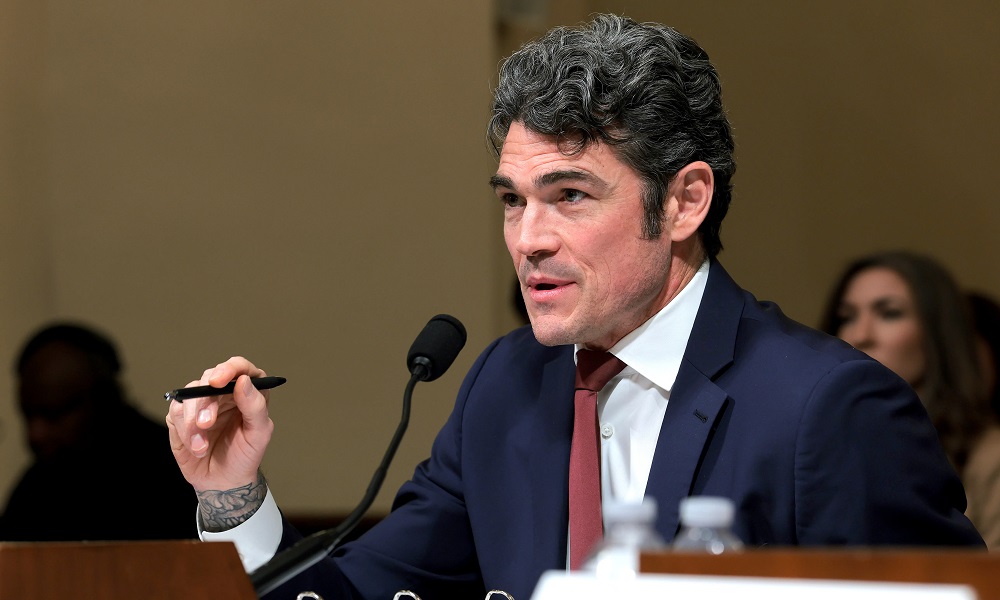
Joe Kent, Director of the U.S. National Counterterrorism Center (NCTC), told a congressional committee that two thousand Afghans evacuated to the United States in 2021 are believed to have links to terrorist organizations.
Kent said these individuals are part of a group of 88,000 Afghans who entered the United States under the “Operation Allies Welcome” program following the collapse of the former Afghan government. According to him, these evacuees “were not properly vetted,” and the screening process was insufficient.
He also referred to the recent attack in Washington, D.C., in which an Afghan evacuee shot two National Guard soldiers, killing one and injuring the other. Kent said the attacker had also arrived in the United States through the Afghan evacuation effort.
The NCTC director added that U.S. security agencies, including the FBI and the Department of Homeland Security, are jointly investigating the two thousand Afghans identified as having suspected links to terrorist organizations. He said that in addition to Afghans, U.S. authorities have also identified 16,000 people from other countries who entered the United States despite having “possible ties” to terrorist groups.
These claims come as debates continue in Washington over how the Afghan evacuation was managed and the security implications that followed.
-

 5 days ago
5 days agoIran seeks broad expansion of cooperation with Afghanistan
-

 Sport4 days ago
Sport4 days agoILT20: Desert Vipers edge Gulf Giants in historic super over thriller
-

 Business5 days ago
Business5 days agoPakistan’s citrus export crisis deepens amid ongoing Afghanistan trade route closure
-
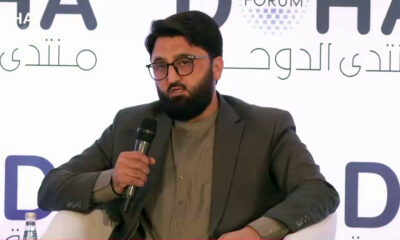
 Latest News5 days ago
Latest News5 days agoDoha Forum: Dialogue between Afghanistan and Pakistan key to regional connectivity
-

 Regional4 days ago
Regional4 days agoSix Pakistani soldiers killed in TTP attack in Kurram District
-

 Business4 days ago
Business4 days agoTrade bodies warn almost 11,000 Afghan transit containers stuck at Karachi port
-

 Latest News5 days ago
Latest News5 days agoUS reviews green cards from 19 countries; Suspends Afghan-related processing
-

 World4 days ago
World4 days agoPowerful 7.6 earthquake hits northern Japan, tsunami warnings issued

